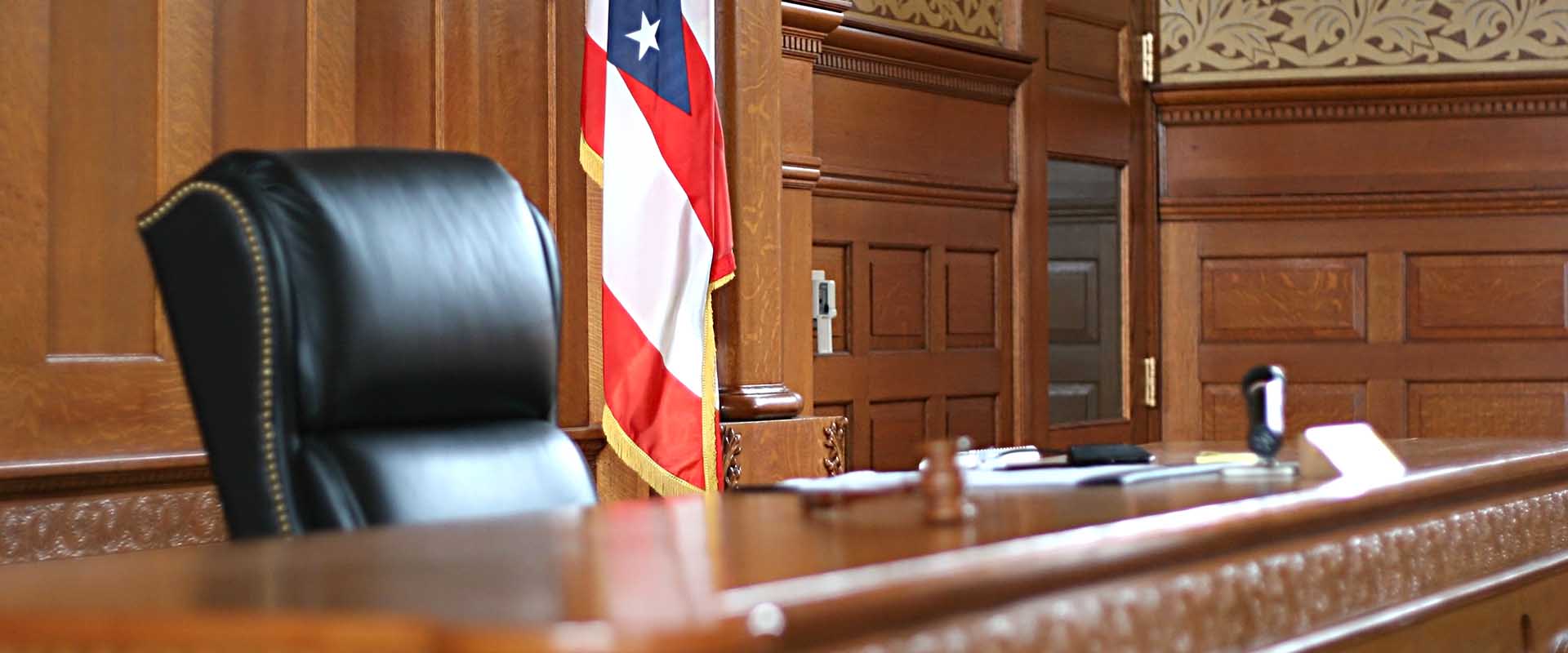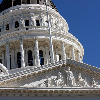California Public Records Act Balancing Exemption Protects COVID Information

September 2021
Number 29
Not all information held by the government is open to public inspection. The California Court of Appeal for the Fourth Appellate District, in Voice of San Diego v. Superior Court of San Diego County (2021) 66 Cal.App.5th 669, ruled in favor of the County of San Diego (County), which successfully asserted that on balance, the public’s interest in withholding the names and addresses of businesses where COVID-19 outbreaks occurred clearly outweighed the public’s interest in disclosing such information.
Background
When a public entity receives a request for records under California’s Public Records Act (CPRA), there are essentially three legal bases on which the entity may rely in order to withhold some or all of the requested information. One legal basis for withholding information falls under the “catchall” exemption (also referred to as a “balancing” exemption) found in Government Code section 6255, subdivision (a), which allows a public agency to withhold a public record when “on the facts of the particular case the public interest served by not disclosing the record clearly outweighs the public interest served by disclosure of the record.”
As COVID-19 infections spread during the spring and summer of 2020, three different local media outlets made requests under the CPRA to the County, seeking records showing data and information regarding COVID-19 outbreaks throughout the County. Although the County agreed to produce its spreadsheets showing contact tracing data, certain information was ultimately withheld from the public. In particular, the County produced a list of COVID-19 outbreaks by business sector, but redacted the location names and addresses where the outbreaks occurred. The County argued that such redactions were lawful, because “[t]here is a significant government interest during a pandemic in the candid exchange of information between those linked to these outbreak locations and the Public Health Officer’s disease investigators. Contact tracing only works when those that are being interviewed are completely honest and forthcoming with relevant information….Releasing the names of these locations and the addresses will have a chilling effect on the open communication necessary to ensure the Public Health Officer is able to effectively combat active outbreaks.”
Determined to obtain this information, the media outlets filed a writ of mandate in superior court, seeking to compel the County to disclose the redacted information. Initially, the County won when the trial court determined that under the balancing exemption in section 6255, subdivision (a), the County had met its burden in proving that the public interest in nondisclosure clearly outweighed the public interest in disclosure.
In January 2021, the three media outlets appealed the trial court’s decision, arguing that the County’s position was based on “speculative concerns, fears and worries over the possible effect of disclosure,” and that the County Public Health Officer’s opinion that the disclosure would have a chilling effect on the County’s contact tracing efforts was unduly speculative and without proper basis. The County prevailed again when the Court of Appeals found in favor of the County, stating that the health officer’s opinion was entitled to weight based on her long history of training and experience as a public health professional. The court discussed past cases cited by the media outlets holding that vague or speculative assertions of harm or adverse consequences are not sufficient to justify a public agency’s decision to withhold public records under the CPRA’s balancing exemption. However, the Court of Appeals differentiated this case, stating “[u]nlike the speculative and vague prospect of adverse consequences in the cases that petitioners cite, the dangers to the public from the spread of disease during the COVID-19 pandemic are real and concrete.” While the media outlets argued that the public had a significant interest in obtaining the redacted information, the court adopted the County’s argument that obtaining the precise locations of past outbreaks does not help people stay safe, and that if the County felt that a specific location was an ongoing threat to public health, the County would shut the business down. Thus, in this instance, the court upheld the trial court’s determination that the public interest in nondisclosure clearly outweighed the public interest in disclosure.
Takeaways
This case is a win for public entities who withhold information because doing so is in the best interest of the public. Although this determination must still be legally and factually supported, the “balancing” exemption is generally seen as carrying more risk than some of the other more concrete exemptions to disclosure, as it is based upon the public agency’s discretion. Still, this case shows that courts are willing to uphold a public entity’s decision to not disclose, particularly where uncontroverted expert testimony is used to support the argument that the public interest in nondisclosure clearly outweighs the public interest in disclosure.
If you have any questions about the California Public Records Act in general, please contact the authors of this Client News Brief or an attorney at one of our eight offices located statewide. You can also subscribe to our podcasts, follow us on Facebook, Twitter and LinkedIn or download our mobile app.
Number 29
Not all information held by the government is open to public inspection. The California Court of Appeal for the Fourth Appellate District, in Voice of San Diego v. Superior Court of San Diego County (2021) 66 Cal.App.5th 669, ruled in favor of the County of San Diego (County), which successfully asserted that on balance, the public’s interest in withholding the names and addresses of businesses where COVID-19 outbreaks occurred clearly outweighed the public’s interest in disclosing such information.
Background
When a public entity receives a request for records under California’s Public Records Act (CPRA), there are essentially three legal bases on which the entity may rely in order to withhold some or all of the requested information. One legal basis for withholding information falls under the “catchall” exemption (also referred to as a “balancing” exemption) found in Government Code section 6255, subdivision (a), which allows a public agency to withhold a public record when “on the facts of the particular case the public interest served by not disclosing the record clearly outweighs the public interest served by disclosure of the record.”
As COVID-19 infections spread during the spring and summer of 2020, three different local media outlets made requests under the CPRA to the County, seeking records showing data and information regarding COVID-19 outbreaks throughout the County. Although the County agreed to produce its spreadsheets showing contact tracing data, certain information was ultimately withheld from the public. In particular, the County produced a list of COVID-19 outbreaks by business sector, but redacted the location names and addresses where the outbreaks occurred. The County argued that such redactions were lawful, because “[t]here is a significant government interest during a pandemic in the candid exchange of information between those linked to these outbreak locations and the Public Health Officer’s disease investigators. Contact tracing only works when those that are being interviewed are completely honest and forthcoming with relevant information….Releasing the names of these locations and the addresses will have a chilling effect on the open communication necessary to ensure the Public Health Officer is able to effectively combat active outbreaks.”
Determined to obtain this information, the media outlets filed a writ of mandate in superior court, seeking to compel the County to disclose the redacted information. Initially, the County won when the trial court determined that under the balancing exemption in section 6255, subdivision (a), the County had met its burden in proving that the public interest in nondisclosure clearly outweighed the public interest in disclosure.
In January 2021, the three media outlets appealed the trial court’s decision, arguing that the County’s position was based on “speculative concerns, fears and worries over the possible effect of disclosure,” and that the County Public Health Officer’s opinion that the disclosure would have a chilling effect on the County’s contact tracing efforts was unduly speculative and without proper basis. The County prevailed again when the Court of Appeals found in favor of the County, stating that the health officer’s opinion was entitled to weight based on her long history of training and experience as a public health professional. The court discussed past cases cited by the media outlets holding that vague or speculative assertions of harm or adverse consequences are not sufficient to justify a public agency’s decision to withhold public records under the CPRA’s balancing exemption. However, the Court of Appeals differentiated this case, stating “[u]nlike the speculative and vague prospect of adverse consequences in the cases that petitioners cite, the dangers to the public from the spread of disease during the COVID-19 pandemic are real and concrete.” While the media outlets argued that the public had a significant interest in obtaining the redacted information, the court adopted the County’s argument that obtaining the precise locations of past outbreaks does not help people stay safe, and that if the County felt that a specific location was an ongoing threat to public health, the County would shut the business down. Thus, in this instance, the court upheld the trial court’s determination that the public interest in nondisclosure clearly outweighed the public interest in disclosure.
Takeaways
This case is a win for public entities who withhold information because doing so is in the best interest of the public. Although this determination must still be legally and factually supported, the “balancing” exemption is generally seen as carrying more risk than some of the other more concrete exemptions to disclosure, as it is based upon the public agency’s discretion. Still, this case shows that courts are willing to uphold a public entity’s decision to not disclose, particularly where uncontroverted expert testimony is used to support the argument that the public interest in nondisclosure clearly outweighs the public interest in disclosure.
If you have any questions about the California Public Records Act in general, please contact the authors of this Client News Brief or an attorney at one of our eight offices located statewide. You can also subscribe to our podcasts, follow us on Facebook, Twitter and LinkedIn or download our mobile app.
Disclaimer: As the information contained herein is necessarily general, its application to a particular set of facts and circumstances may vary. For this reason, this News Brief does not constitute legal advice. We recommend that you consult with your counsel prior to acting on the information contained herein.




